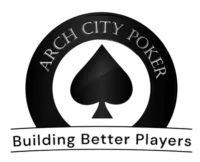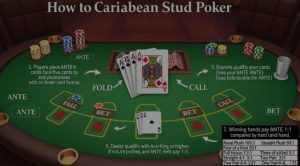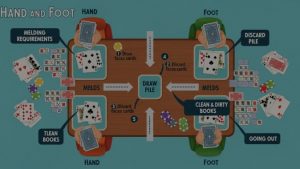Breaking Down the Old Guard Advantage
For decades, poker knowledge concentrated among an elite group of professionals who guarded their strategies closely. New players entering the game faced an uphill battle, often losing money for years before developing winning strategies through painful trial and error. The information asymmetry between experienced pros and newcomers created an almost insurmountable advantage for established players.
Online poker training has disrupted this dynamic by making expert knowledge widely available. Today’s new players can access the same strategic frameworks that took previous generations years to develop. This acceleration of the learning curve has reshaped the competitive environment, allowing motivated beginners to reach competency far faster than was historically possible.
The Cost of Learning Through Experience Alone
Players who learned poker exclusively through table time paid enormous tuition in the form of losses. Every mistake cost real money, and without guidance, players often repeated the same errors hundreds of times before recognizing patterns in their play. The financial burden of this experiential learning path prevented many talented players from continuing long enough to become profitable.
The time investment required to learn through experience alone extended careers unnecessarily. Players who could have reached proficiency in months instead spent years grinding through trial and error. Many gave up before ever reaching their potential, mistakenly believing they lacked the talent for poker when they simply lacked efficient learning methods.
The psychological toll of constant losing while learning damaged many aspiring players permanently. The emotional swings of downswings hit harder when players doubt their abilities and lack frameworks for knowing variance. Online training provides context that helps new players maintain motivation through the difficult early phases of their development.
Structured Learning Paths for Beginners
Quality online training programs guide new players through logical skill progressions. Instead of the overwhelming task of learning everything at once, structured curricula break poker education into manageable units. Students master fundamental concepts before advancing to more sophisticated strategies, building solid foundations that support long-term growth.
The elimination of knowledge gaps is a major advantage of structured learning. Self-taught players often develop strong skills in some areas while remaining weak in others. These gaps become exploitable weaknesses that cost money. Systematic training ensures students develop balanced skill sets across all game aspects.
Clear milestones and progression markers help new players understand their development. Rather than wondering if they are improving, students working through structured programs can see concrete evidence of their advancement. This visibility of progress maintains motivation and commitment to the learning process.
Access to Expert Instruction at Scale
In the past, new players had almost no access to expert coaching. Top pros commanded rates beyond beginner budgets, and even finding coaches willing to work with developing players proved challenging. Online poker training has solved this access problem by recording expert instruction and distributing it at prices nearly anyone can afford.
The quality of instruction available online often exceeds what players would receive from local coaches. Video content from world-class professionals provides insights that many regional coaches could never offer. New players starting their education today receive better instruction than most professionals had access to when they started their careers.
The variety of teaching styles available online ensures students can find instructors who resonate with their learning preferences. Some students learn best from analytical, data-driven instruction, while others prefer intuitive, feel-based teaching. The abundance of content online lets students choose approaches that match their cognitive styles.
Accelerated Pattern Recognition Development
Poker success depends heavily on pattern recognition. Experienced players instantly recognize common situations and select appropriate responses almost automatically. Building this pattern recognition library traditionally required years of play. Online training accelerates this process through concentrated exposure to common scenarios.
Training exercises that present specific situations repeatedly build pattern recognition much faster than random table experience. When students encounter three-bet pots hundreds of times in training scenarios, they develop responses to these situations more quickly than waiting for them to occur naturally in games.
Hand example libraries expose students to more situations in days than they might encounter in months of play. By studying hundreds of hands dealing with specific concepts, students develop mental models that guide their decisions in similar situations. This concentrated learning compresses years of experience into much shorter timeframes.
Why Decisions Work
The explanatory power of quality training content helps new players understand not just what to do but why certain plays work. This conceptual knowledge allows students to adapt strategies to different situations rather than mechanically following rules that may not apply universally.
Blindly following advice without knowing the underlying principles leads to rigid play that better opponents exploit. Online training emphasizes the reasoning behind recommendations, helping students develop the analytical skills to make good decisions in novel situations. This foundation of knowledge supports continued growth beyond initial instruction.
The ability to evaluate strategic advice becomes possible when students understand fundamental principles. As players advance, they encounter conflicting advice from various sources. A solid conceptual foundation helps them evaluate which recommendations apply to their games and which do not.
Tools & Technology for Practice
Software applications integrated with online training programs let new players practice decision-making in risk-free environments. These tools provide immediate feedback on choices, helping students identify mistakes and correct them before they cost money at real tables. The low-pressure nature of practice environments encourages experimentation and learning.
Scenario trainers present students with situations and evaluate their responses. This active learning approach engages students more effectively than passive content consumption. Students who work through training scenarios retain information better and develop skills more quickly than those who only watch videos or read articles.
Tracking progress through software applications provides objective measures of improvement. Students can see their decision-making accuracy increase over time, providing concrete evidence that their study efforts produce results. This feedback motivates continued learning and helps students identify areas still needing work.
Community Support for New Players
Online training platforms create communities of learners at similar skill levels. This peer support system provides encouragement during difficult learning phases and celebrates victories along the way. The social aspects of learning communities often prove decisive in considering if new players persist through early challenges or quit prematurely.
Study groups formed within training communities allow new players to learn from each other. Discussing hands with peers reinforces concepts and exposes students to different ways of thinking about situations. This collaborative learning environment makes poker education more engaging and effective.
The ability to ask questions and receive answers from more experienced players smooths the learning process significantly. Rather than struggling alone with confusing concepts, new players can seek clarification and get unstuck quickly. This support system prevents the frustration that causes many beginners to abandon their poker education.
Building Bankrolls Through Better Play
The faster path to competency that online training provides translates directly into better bankroll management. New players who reach winning play quickly lose less money during their learning phase. Many players who invest in training actually save money compared to the losses they would incur learning through experience alone.
The confidence that comes from structured learning helps new players select appropriate stakes. Rather than jumping into games beyond their skill level out of impatience or ego, properly trained players understand the importance of moving up gradually as their skills improve. This disciplined approach prevents the catastrophic losses that end many poker careers.
Consistent winning at lower stakes, achieved through proper training, provides the financial foundation for moving up in stakes. Players who skip the training and jump directly into games often hemorrhage money and never build the bankrolls needed to advance. The small investment in education pays for itself many times over in preserved bankroll and accelerated advancement.
The New Player Advantage in Modern Poker
Today’s new players enter poker with advantages previous generations never had. Access to game theory optimal strategies, equity calculators, and expert instruction means beginners can develop solid fundamentals from day one. This strong foundation supports faster advancement than the trial-and-error approach of the past.
The explicit teaching of mental game concepts helps new players avoid the psychological pitfalls that derailed many talented players historically. Knowing variance, bankroll management, and tilt control from the beginning prevents problems that often take years to recognize and address.
Modern training methods teaching hand reading, range construction, and balanced play give new players tools to compete effectively even against experienced opponents. While experience still provides advantages, the knowledge gap has narrowed dramatically. Motivated new players with access to quality training can compete far earlier in their development than was possible in previous poker eras.
The Future of Poker Education
As online training continues to evolve, the advantages for new players will only increase. Improvements in interactive learning tools, personalized feedback systems, and adaptive curricula will make poker education even more effective. The barriers separating beginners from profitable play continue to fall.
The democratization of poker knowledge has made the game more accessible to talented players regardless of their starting circumstances. Geographic location, personal connections, and financial resources no longer determine who can access quality education. This leveling of the playing field benefits the entire poker ecosystem by bringing more skilled, knowledgeable players into the game.
New players entering poker today stand on the shoulders of previous generations, learning in hours what took others years to discover. Online poker training has made this possible, giving motivated beginners the tools they need to compete and succeed. The playing field, while never truly level, has become far more balanced than at any previous time in poker history.





